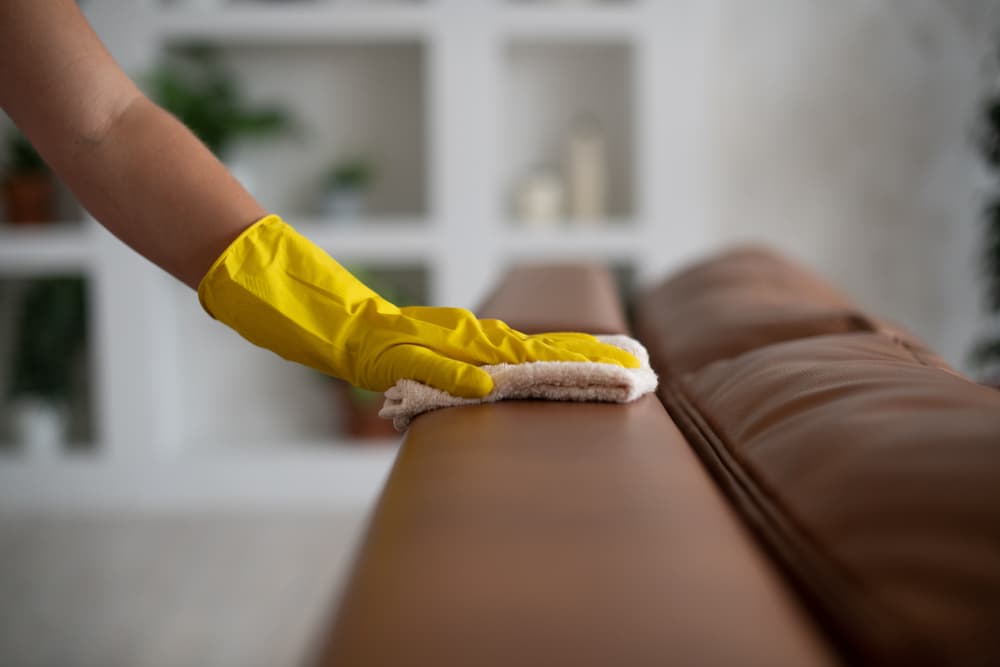The proper maintenance of furniture is paramount to ensure its durable use. Consistent use of furniture without appropriate care can diminish the natural properties of the furniture and cause it to dry out. Furnishings, especially leather, need proper care to prevent cracking and ensure it last long. Cleaning out the furniture would make the leather stronger and last longer. It would also improve the pigmentation of the leather furniture and make it more comfortable for use.
Leather furniture is long-lasting furniture with a timeless look and easy maintenance procedure that provides better value to buyers. It requires proper maintenance, such as keeping it out of the sun’s reach, wiping the leather with a clean cloth and using leather protectors to improve the comfort of the human skin and eliminate the cost used to replace the furniture when damaged. It has a steady temperature that makes it suitable for hot and cold weather, thus serving as a good choice for the hospitality industry.
Leather furniture is long-lasting furniture with a timeless look and easy maintenance procedure that provides better value to buyers. It requires proper maintenance, such as keeping it out of the sun’s reach, wiping the leather with a clean cloth and using leather protectors to improve the comfort of the human skin and eliminate the cost used to replace the furniture when damaged. It has a steady temperature that makes it suitable for hot and cold weather, thus serving as a good choice for the hospitality industry.
The maintenance/cleaning of the leather furniture depends on its use. In hotels, this furniture is used consistently; thus, there are specific cleaning methods for every duration of usage.
- Remove dust and dirt on the furniture’s surface; use a vacuum cleaner for hard to reach areas once a week. You can also use a damp cloth for cleaning softly to avoid discoloration.
- Every two to four weeks, use specialized cleaning products to maintain the leather. Avoid harsh chemicals, all-purpose wipes, and sprays to prevent damage. Allow the furniture to dry out naturally, and do not use it until dry.
- Use a specialized conditioner every 6-12 months to prevent drying and crack out. You can also opt for restoration services within this period if the furniture has stains, scuffs, cuts and tears, color loss, burns and heat marks, broken stitching, or require reupholstering.
Consider these tips for caring for the faux leather:
- Faux leather requires less care, more synthetic than leather, is nonporous, and is more resistant to stains.
- Avoid ammonia water, abrasive cleaners, varnish, oils, furniture polish, and solvents when cleaning. When cleaning with any new material or method, try to try it out in a hidden area before applying wholly. This is to determine how the item’s material would affect the furniture and prevent severe damage to visible areas of the table.
- In cases of spills, wipe off the excess as soon as possible with a sponge or cloth moistened with lukewarm water. Afterwards, let the area dry out naturally.
- For stains resulting from grease, oil, or butter, the excess should be wiped off and afterwards, sprinkle corn starch or baking soda, leave overnight, and then wipe off. If stain is still present, clean off with alcohol. Users can also opt for rubbing alcohol or alcohol-based cleaner for tougher stains. However, this should be applied with caution to prevent damage to the furniture.
- Wipe off cleaning products when the stains are removed immediately with a mild washing liquid to prevent potential damages.
